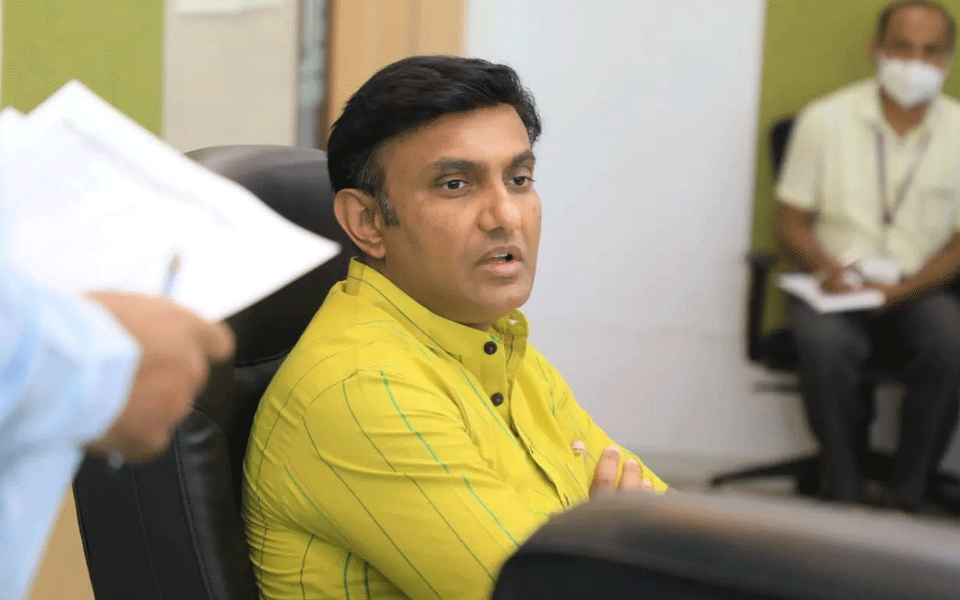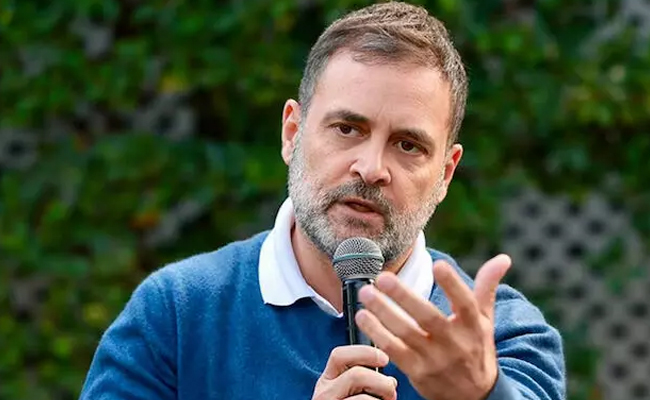Bengaluru(PTI): Karnataka Health Minister K Sudhakar on Saturday said the state government will take care of medical treatment cost of a 24-year old woman who was attacked with acid by her spurned lover earlier this week, and assured that the culprit won't be spared.
The minister visited the victim, who is being treated in the ICU at St. John's Hospital here, and spoke to her and expressed solidarity with her family.
"The government will not spare the culprit who is responsible for such a heinous act...the government stands with them (victim and her family) and the treatment of the woman will be taken care of by the government," Sudhakar said.
Condemning the acid attack, he said, "This is an inhuman incident which is shameful and unbecoming for a civilised society, and cases like these must be trialled in fast-track courts and the culprits must be punished quickly. Only then, we can send a stern message to such anti-social elements and create a deterrent."
A jilted man identified as 27-year-old Nagesh threw acid on the woman in Bengaluru on Thursday. Police have registered a case and according to them he was apparently dismayed when the victim turned down his proposal.
Stating that the health department will extend all support for the treatment of the victim, Sudhakar said the woman has suffered 35 per cent burns and is being treated in the ICU.
"Skin graft necessary for treatment will be sourced from the skin bank at BMCRI (Bangalore Medical College and Research Institute). I have decided to personally give Rs 5 lakh to the victim. Our government will ensure all support to the victim and her family, be it treatment, rehabilitation and securing the future of the girl," he said.
Society needs to collectively think and act to ensure that such incidents are not repeated and work towards building a safe environment for women, the minister added.
Bengaluru Police Commissioner Kamal Pant, who also met the victim, said an investigation is on and seven teams have gone to various places, including other states, to gather information about the culprit and will be successful in the efforts to nab him very soon.
"....investigation is on, we have got some clues about the culprit's whereabouts," he added.
Let the Truth be known. If you read VB and like VB, please be a VB Supporter and Help us deliver the Truth to one and all.
New Delhi (PTI): To beef up the security infrastructure of ports, the government will set up a statutory body -- the Bureau of Port Security -- that will ensure timely analysis, collection and exchange of security-related information of ports and vessels, officials said on Friday.
Union Home Minister Amit Shah on Thursday convened a meeting for the constitution of the dedicated body, the Bureau of Port Security (BoPS), which was attended by the Minister of Ports, Shipping and Waterways, Sarbananda Sonowal, and the Minister of Civil Aviation, Ram Mohan Naidu, an official statement said.
Emphasising that there is a need to establish a country-wide robust port security framework, Shah directed that security measures should be implemented in a graded and risk-based manner, taking into account vulnerabilities, trade potential, location, and other relevant parameters.
ALSO READ: Four arrested in cattle theft case after encounter in UP's Kaushambi
The meeting also noted that lessons learned from the maritime security framework shall be replicated in the aviation security domain, the statement said.
The new body, modelled on the lines of the Bureau of Civil Aviation Security (BCAS), will be constituted as a statutory body under the new Merchant Shipping Act, 2025, and will work under the aegis of the Ministry of Ports, Shipping and Waterways (MoPSW), it said.
Headed by a senior IPS officer as its director general, the BoPS will be responsible for regulatory and oversight functions relating to the security of ships and port facilities.
"During the transition period of one year, the director general of shipping shall function as the director general of BoPS," the statement said.
"The BoPS will ensure timely analysis, collection and exchange of security-related information, with a special focus on cybersecurity, including a dedicated division to safeguard port IT infrastructure from digital threats," it said.
The government has designated the Central Industrial Security Force (CISF) as a recognised security organisation (RSO), responsible for undertaking security assessments and preparation of security plans for port facilities.
The Central Armed Police Force (CAPF) will train and build the capacities of private security agencies (PSAs) engaged in port security.
"These agencies shall be certified and appropriate regulatory measures shall be introduced to ensure that only the licensed PSAs operate in this sector," the statement said.





